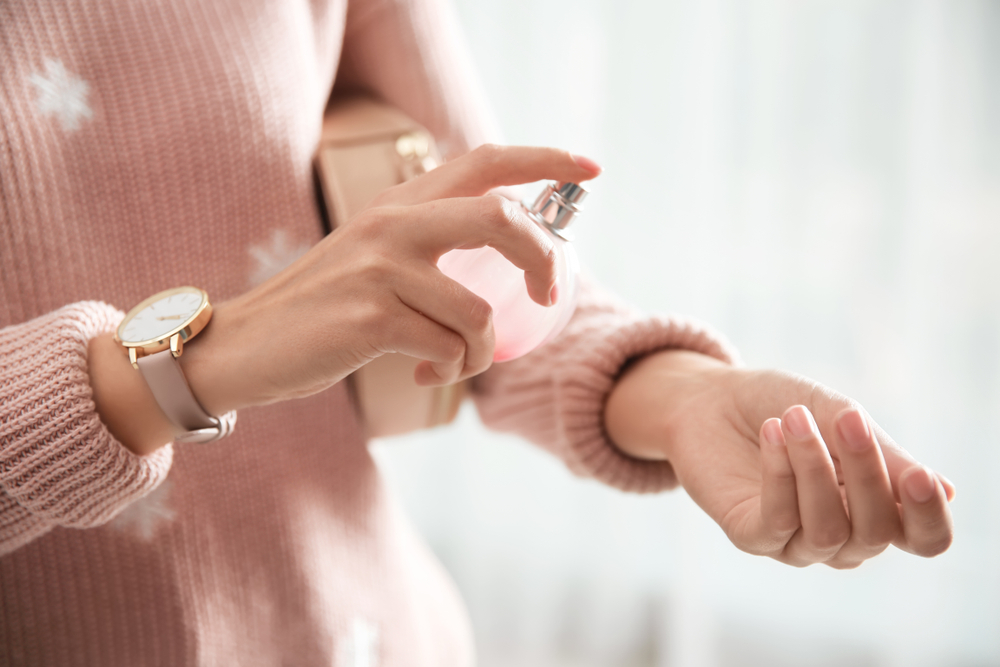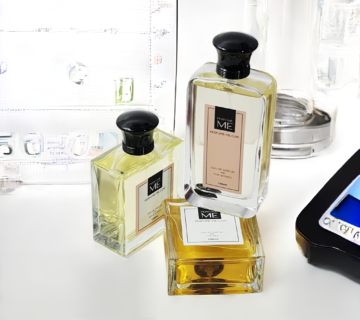Alcohol-based perfumes are widely popular. It is because we all love to smell good. However, most of us are not aware that the fragrance we love might be dangerous to the people around us and us. An alcoholic perfume contains almost 70% to 90% alcohol (commonly known as Ethanol). As Ethanol evaporates quickly, it leaves the fragrant material on the skin. The contact of skin and alcohol sometimes results in consequences like allergies. This could be avoided if quality alcohol is used.
In this article, we’ll discuss the harm that mixing perfumes with subpar and non-compliant alcohol may cause to some users. The reader will be made aware of how crucial it is to select nebulized fragrances with high-quality alcohol in order to avoid or significantly lessen the negative effects of bad alcohol on health. Here are some of the harmful effects of non-confirming alcoholic perfumes.
1. Nasal Allergies
Non confirming alcohol content can be highly harmful to the nasal passage. Most perfumes contain a high amount of alcohol, making the perfume challenging to smell. Moreover, inhalation of such aromas can trigger breathing problems like asthma and other respiratory diseases. Especially people with asthma, allergies, rhinitis, and sinus problems tend to catch the adverse effects of these perfumes. In addition, even fragrances with a lower concentration of alcohol can aggravate their nasal and respiratory allergies.
2. Skin Problems
Exposure to Non confirming alcoholic fragrances can result in various skin problems like urticaria, dermatitis, skin discoloration, and photo allergy. In Europe, researchers have proved that around 3% of the population suffers from dermatitis and urticaria caused by perfumes. Women seem to be more allergic than men, showing more frequent perfume usage among women. These deodorants are highly harmful and can initiate or trigger the following skin problems:
3. Contact Dermatitis
Contact dermatitis is the most common allergic response to allergens and harmful contents. The typical symptoms of dermatitis are redness, swelling, and itching. Blistering is the indication that it has reached the worst stage. Dermatitis from fragrance often occurs on the armpits, hands, and face. It may be the initial cause of eczema. The high proportion of alcoholic perfume can lead to the worst eczema cases and irritable skin.
4. Contact Urticaria
Urticaria is one of the skin conditions caused by alcohol in perfumes. It starts with symptoms like itching and localized areas of redness and swelling where the product was applied. This condition triggers immediately, and the symptoms appear within a few minutes after exposure to perfumes.
5. Photo Allergy and Photo Toxicity
Photo allergy and photo toxicity are rare skin cases. The clinical symptoms of photo allergy start from eczema. However, the symptoms may disappear within 2-48 hours, depending on the amount of product. Cinnamates is the fragrant material that can cause photo allergy. Nonetheless, photo toxicity is a non-allergic reaction to fragrance. It can generally cause redness followed by hyperpigmentation.
6. Dry Skin
Dry skin is not an allergic reaction; however, the more prolonged contact with ethanol-based perfumes can cause dry patches on the skin, resulting in itching and redness. Can these problems be avoided or minimized to a safe extent? Unfortunately, avoiding perfume is not possible. Fragrances play a huge role in our impressions. And no one wants to smell musty and dull after a few hours of showering. So, there are three possible options:
1. Avoid wearing alcoholic fragrances.
2. Make use of alcoholic perfumes from reputable brands that are made with premium oils and alcohol that complies with global norms.
3. Using non-spraying oil perfumes.
For the third option, other problems will arise. Natural oils from reliable sources are incredibly expensive. For example, the price of a kilo of natural roses ranges from 10,000 to 20,000 US dollars. Also, some natural oils cause serious allergic reactions if not used in controlled quantities, and some cause risks, especially when exposed to light. Chemically manufactured oils also have their problems.
AN IMPORTANT POINT HERE IS TO BE MADE CLEARLY. We have not mentioned Methanol in the above paragraphs at all as Methanol is a different alcohol entirely than ethanol. It’s extremely toxic and readily absorbed by the skin. You should never even consider using any perfume contains methanol. Sadly, Methanol rather than ethanol may be included in some scents because it is cheaper. The worst-case situation a perfume user could experience is this. Methanol is extremely hazardous, and some studies have shown that it may cause cancer and blindness.
Final Words
In conclusion, alcohol-based perfumes may cause issues if they are not produced using precise, controlled techniques and high-quality ingredients. In the production of perfumes, using high-quality ethanol is necessary and essential. Also, we usually encourage our customer to use alcoholic perfumes on their clothes rather on skin as much as they can. Always try your perfume on a small area of your skin and wait to see any unwanted reactions.





No comment